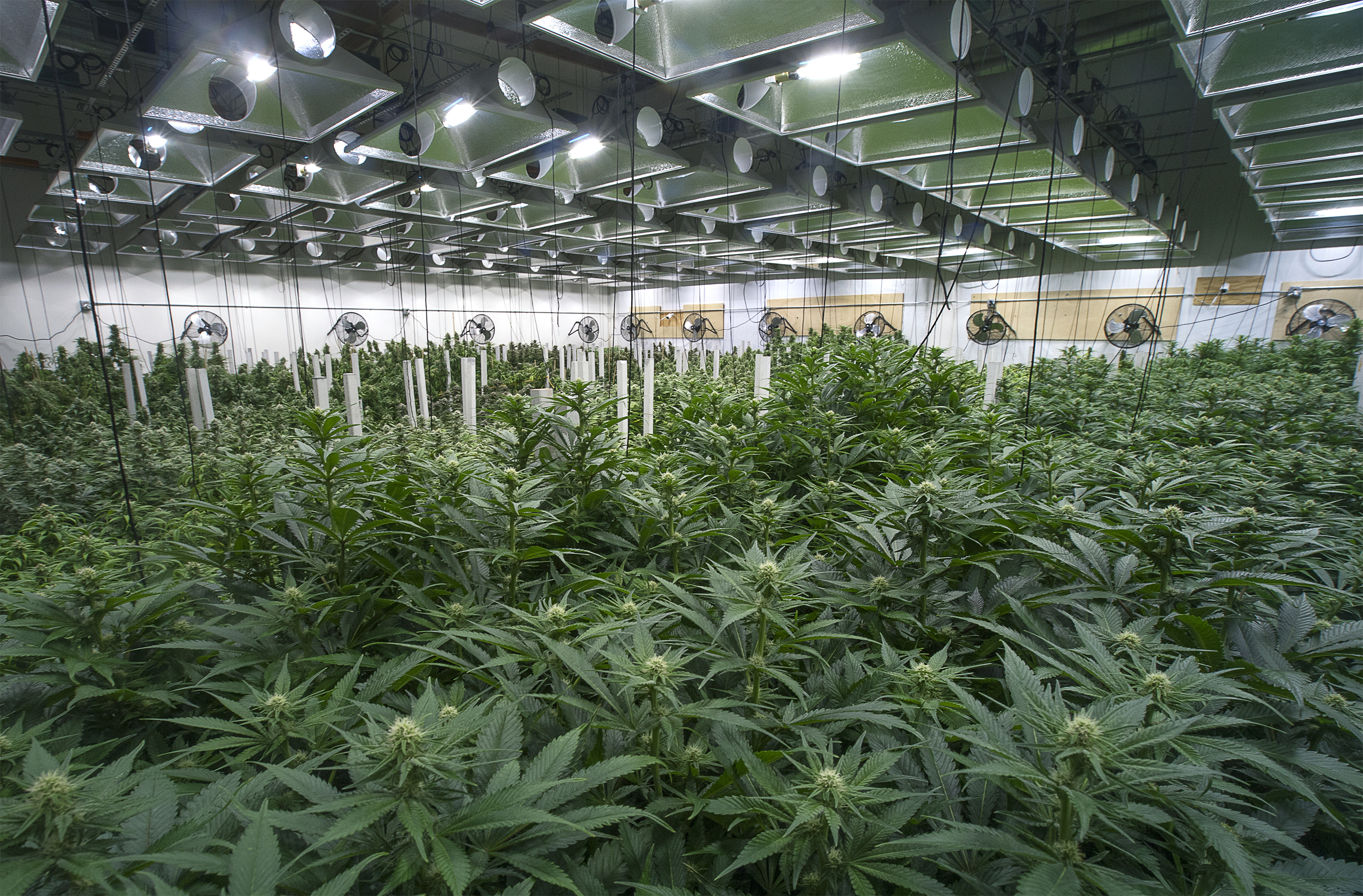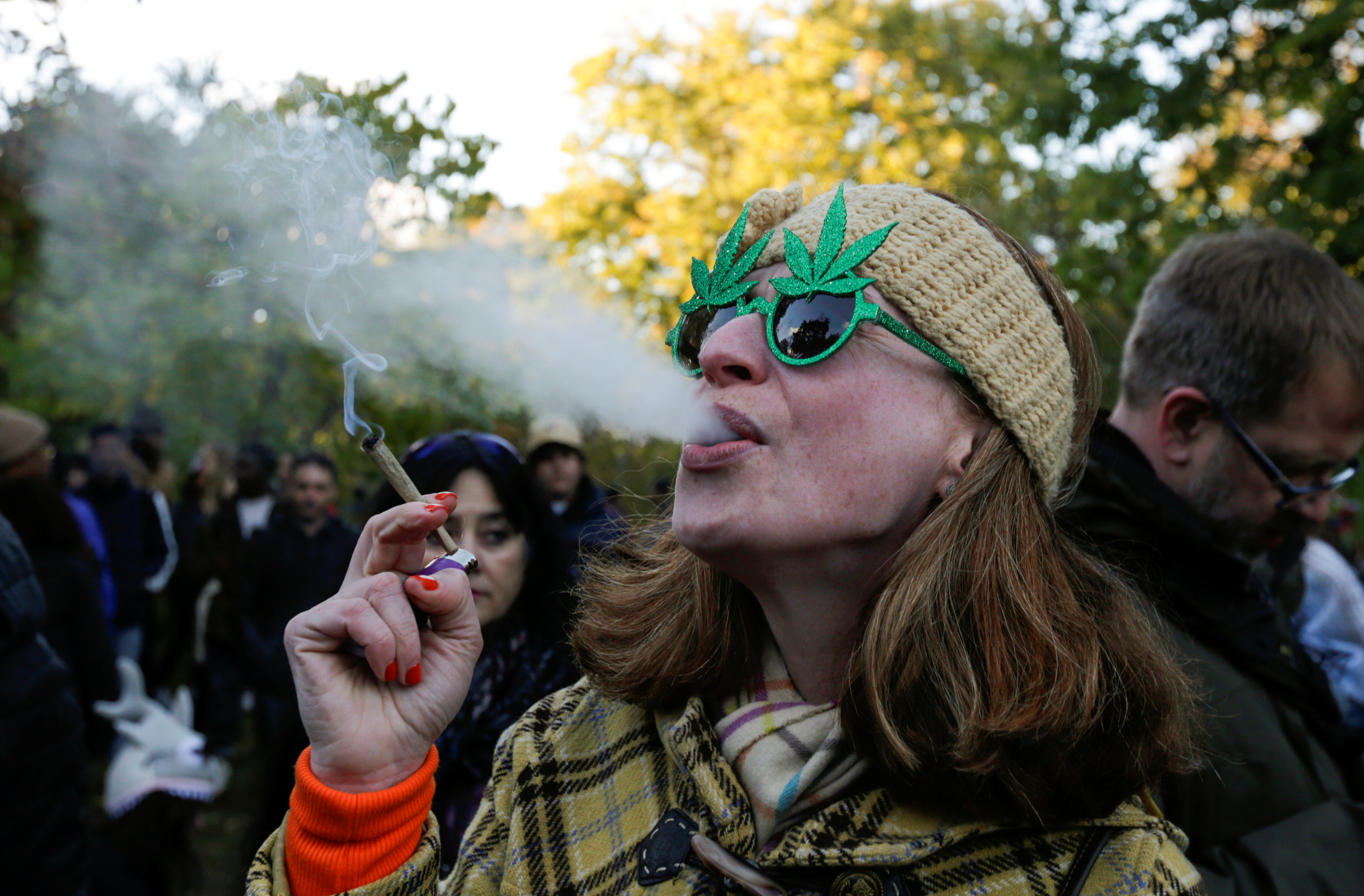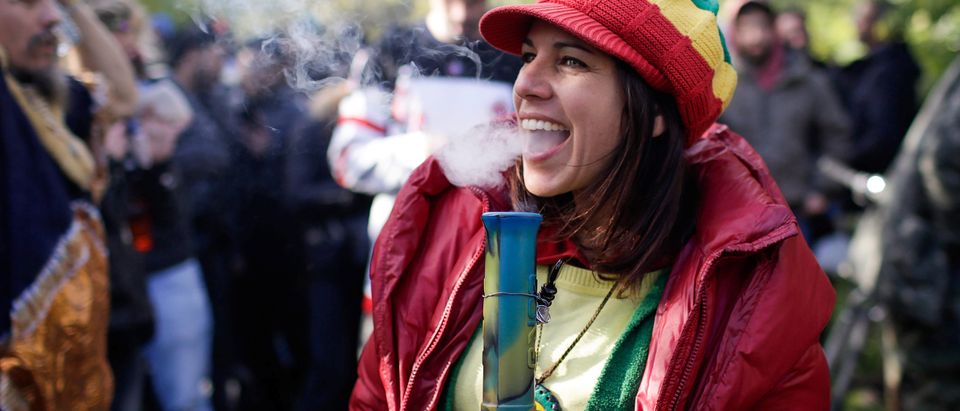- Michigan, North Dakota, Utah and Missouri voted on ballot initiatives to legalize recreational or medicinal marijuana use at Tuesday’s midterm elections.
- Missouri and Utah legalized medicinal marijuana use, joining 31 other states along with the District of Columbia.
- Michigan residents voted to legalize recreational marijuana, while North Dakota voters rejected their state’s proposal to do so.
A number of midwest states voted to legalize recreational and medicinal marijuana Tuesday, signaling a shift in the region.
Michigan residents voted 57.5 percent to 42.5 percent to pass Proposal 1 which legalizes possession and recreational use of marijuana, according to CNN. The proposal’s passage also means the state will subject marijuana sales to a 10 percent tax. The measure will likely take effect in early December. Michigan’s Department of Licensing and Regulatory Affairs and its state legislature will determine when businesses may begin selling the drug.
The vote comes after the state passed a ballot to approve medicinal marijuana in 2008.
“Troopers that work along the state line are very cognizant of what’s going on up north,” said Indiana State Police Sgt. Ron Galaviz, according to The Associated Press. “We know some of our citizens are going to go over to Michigan to partake … [but] we’ll enforce our laws as written,” Galaviz said. Marijuana use in Indiana is not legal.
Voters in North Dakota, however, voted against adopting Measure 3 which would have legalized recreational marijuana use for people 21-years-old and above as well as expunged the records of all persons who’d previously been convicted for using the drug.
Medicinal marijuana became legal in North Dakota after voters approved a ballot initiative, the North Dakota Medical Marijuana Legalization Initiative, in 2016.
North Dakota Republican Rep. Kevin Cramer ousted incumbent Democrat Sen. Heidi Heitkamp Tuesday night.

Large marijuana grow operation, commercial Cannabis business. Shutterstock/Canna Obscura
Utah residents voted yes on Proposition 2 allowing medicinal marijuana use in the state. The measure permits patients to acquire the drug for medicinal use, and allows individuals in certain circumstances to grow six marijuana plants. The vote comes after those in support and opposition to the measure compromised to finalize the proposed legislation Oct. 3. (RELATED: Chronic Pain Sufferers Now Have Access To Medical Marijuana In Illinois)
Mormon church leaders in Utah initially opposed the proposition, but cautiously conceded support for the legalization of medical marijuana on the premise that medical dispensaries won’t be abused. Fifty-five percent of Utah residents identify as Mormon, according to the Pew Research Center.
Utah has the youngest population of any U.S. state, and Democratic Senate candidate Jenny Wilson hoped the demographic would turnout to vote for her. Wilson supported Proposition 2 while her opponent and victor, Mitt Romney, opposed the measure.
“This motivates young people because it’s a question of freedom, of justice,” Sen. Brian Schatz of Hawaii said ahead of Tuesday’s midterms, pointing to the Democrats’ efforts to mobilize young liberal voters with ballot initiatives legalizing marijuana, The Washington Post reported.
Missouri residents voted 65.3 percent to 34.7 percent for Amendment 2 to legalize medicinal marijuana Tuesday, joining a majority of U.S. states that allow residents to use marijuana for medicinal purposes. The state will tax marijuana at four percent and spend the collected revenue on healthcare services for veterans, according to BallotPedia.
Voters rejected Amendment 3 which would have legalized medicinal marijuana and taxed the drug at a 15 percent rate. Voters also turned down Proposition C to legalize medicinal marijuana and tax sales at a two percent rate with revenue going towards drug treatment, veterans’ services, law enforcement and education.
Leading up to the midterms, Missouri Democratic Sen. Claire McCaskill sought to mobilize young voters, a majority of whom support legalizing marijuana, according to The Washington Examiner. Her efforts were unsuccessful and she was beaten Tuesday night by Republican Senate candidate Josh Hawley, 52.1 percent to 44.8 percent.

A woman smokes a joint on the day Canada legalizes recreational marijuana at Trinity Bellwoods Park, in Toronto, Ontario, Canada, October 17, 2018. REUTERS/Carlos Osorio
Thirty one states, along with the District of Columbia allow medicinal marijuana use, according to ProCon.org. Nine states and D.C. also allow recreational marijuana use. Colorado and Washington were the first states to legalize recreational marijuana in 2012. (RELATED: Seniors Treating Aches And Pains Among Fastest Growing Groups Of Cannabis Users)
Sixty-two percent of Americans think marijuana should be legalized, according to an October Pew Research Center poll.
All content created by the Daily Caller News Foundation, an independent and nonpartisan newswire service, is available without charge to any legitimate news publisher that can provide a large audience. All republished articles must include our logo, our reporter’s byline and their DCNF affiliation. For any questions about our guidelines or partnering with us, please contact licensing@dailycallernewsfoundation.org.


